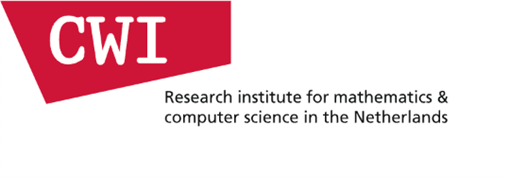Read the interview with Irene Viola and her winning proposal OPEN-DASH-PC: Open-Source ULL-DASH-PC For Multi-Party Real-Time Communication


Irene Viola and CWI & MotionSpell
Irene Viola is a senior (tenured) researcher at Centrum Wiskunde & Informatica (CWI), the Dutch national research institute for mathematics and computer science, in the Distributed and Interactive Systems (DIS) group. In DIS, the goal is to enhance user interaction with technology through a human-centric approach, developing advanced multimedia systems and infrastructure, and enhancing the quality of user experience.
For this project, they collaborate with Motion Spell. MotionSpell leverages GPAC, an open-source multimedia platform, to offer consulting, integration, licensing, and training services, and aids clients like Netflix in deploying cutting-edge multimedia solutions. They already collaborated with MotionSpell in the EU2020 project VRTogether, and are now teaming up to release an open-source version of the point cloud DASH component.
Can you give a brief overview of your winning proposal?
What are its key objectives and innovative aspects?
Our proposal, OPEN-DASH-PC, tackles the limitations of current real-time, multi-user immersive communication protocols, which face scalability issues and require complex central server algorithms. We propose Ultra Low Latency Dynamic Adaptive Streaming over HTTP for Point Cloud content (ULL-DASH-PC), an open-source transport protocol that enables efficient, multi-quality, multi-user communication through point cloud data. OPEN-DASH-PC will be integrated into the SPIRIT platform and tested in the SPIRIT 5G testbed under real-world mobile network conditions. Our goal is to benchmark its performance against WebRTC, providing valuable insights for future research and practical applications. This effort will also contribute a new protocol component to the SPIRIT project, influence relevant standardisation efforts, and potentially create new revenue streams for the consortium. By advancing the state of immersive communication, OPEN-DASH-PC will support both academic and industrial innovation.
What motivated you to apply for the SPIRIT Open Call?
We applied to the SPIRIT open call to contribute to a relevant EU project advancing immersive communication technology. We saw it as an opportunity to collaborate with partners in Europe to deliver innovative transport solutions, leveraging the expertise that the SPIRIT consortium has gathered in the field and combining it with our own knowledge on low-latency solutions for immersive communication systems. By integrating our protocol with SPIRIT, we aim to improve real-time, multi-user communication, addressing scalability and adaptability issues. This collaboration will highlight our innovations and place our work at the forefront of EU-funded research, aligning with SPIRIT’s focus on 5G and real-world testing. It offers a valuable platform to validate our technology and drive progress in immersive solutions.
How do you envision this project making an impact?
Our project aims to make a significant scientific and strategic impact by open-sourcing the ULL-DASH-PC component. Scientifically, this will advance real-time immersive communication by enabling live and on-demand streaming across diverse content types, from traditional videos to immersive formats like omnidirectional content and time-varying meshes. We will provide a reference implementation and benchmark various protocols, guiding future research and identifying optimal solutions for different network conditions. Our findings will inform standardisation efforts for ISO/IEC MPEG-DASH and ITU SG12. Strategically, open-sourcing ULL-DASH-PC will enhance its accessibility, invite community collaboration, and improve transparency, security, and customisation. This move will not only benefit academia and industry but also support MotionSpell’s shift from a commercial product to a community-driven service, extending its impact and fostering innovation in real-time adaptive streaming.
